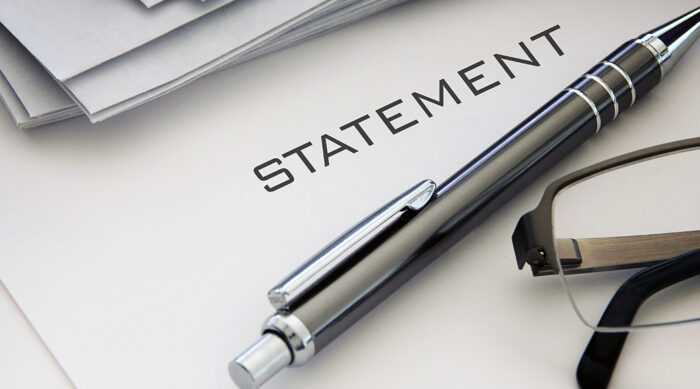
Defamation can be a devastating blow to an individual’s reputation, causing lasting damage both personally and professionally. When faced with a defamatory statement, pursuing a retraction can be a proactive step toward mitigating the harm caused. This article from Buckingham provides insights into the process of obtaining a retraction for defamatory statements, outlining key steps, and considerations.
Understanding Defamation
Defamation generally refers to false statements that harm the reputation of an individual or entity. It can be classified as either slander (spoken defamation) or libel (written or published defamation). To learn more about each, check out this article: “Libel vs. Slander”. There are a few elements of defamation, but for a statement to qualify as defamatory, it must be false, damaging, and communicated to a third party. In addition, the statement must be a statement of fact, and not an opinion or hyperbole.
The Importance of Retractions
What is a defamation retraction? Retractions serve as a mechanism to correct the record and mitigate the damage caused by defamatory statements. They demonstrate a commitment to truth and fairness, potentially preventing further harm to the affected party’s reputation. While a retraction cannot erase the damage entirely, it can help to restore an individual’s or business’s reputation in the future.
Things to Consider When Pursuing a Retraction
While it may seem like an obvious decision to pursue a retraction for a defamatory statement, it is not always the most pertinent option to repair your reputation. While retractions can help set the record straight, and make sure that a false statement is corrected, they can also bring the false statement or accusation back to the forefront of the news cycle.
In addition, a statement of retraction can also bring more attention to a false accusation or statement. This is known as the Streisand Effect, which means drawing more people’s attention to a matter that otherwise did not get much attention. In certain instances, a retraction to a person’s social media page can draw more attention to the matter, and call into question the original statement. In other words, you should carefully consider whether a retraction is an appropriate remedy to protect your reputation before pursuing one.

How to Pursue Obtaining a Retraction
It is important to remember that a retraction statement is only a remedy that you can achieve through negotiation with the other party. In almost every case, a Judge cannot, and will not, order a Defendant to publish a retraction. So if a statement of retraction is the ultimate goal, there are steps you can take, outside of litigation, to achieve that goal.
- Document the Defamation
Collect evidence of the defamatory statement, including the date, time, and medium through which it was communicated. Screenshots, witness statements, and any relevant context will strengthen your argument for the damage the statement has caused, and the need for a retraction.
- Identify the Responsible Party: Determine who made the defamatory statement and, if applicable, the media outlet or platform that published it. This information is crucial for addressing the responsible parties during the retraction process.
- Start a Dialogue with the responsible party: Your defamation attorney can draft an outreach to the other party to discuss a potential retraction. This letter should outline the defamatory statement, provide evidence of its falsehood, and request a public retraction and apology within a specified timeframe.
- Negotiate with the Responsible Party: Negotiations are key to obtaining a retraction, as they can only be achieved in this manner. If your main goal is to obtain a retraction from the other party, you should be prepared, in some instances, to negotiate other terms of a settlement with the responsible party, including foregoing financial compensation, to achieve your goal and to get an effective retraction statement.
Obtaining a retraction for a false and defamatory statement can be a difficult task.
Because Courts will not order a retraction to be published, the only means of
obtaining a retraction is through negotiation with the other party. Consulting
with an attorney who is experienced in defamation cases and obtaining retractions
can help you determine whether a retraction is necessary and assist in
obtaining a retraction as efficiently as possible, while also guarding against any potential bad outcomes.